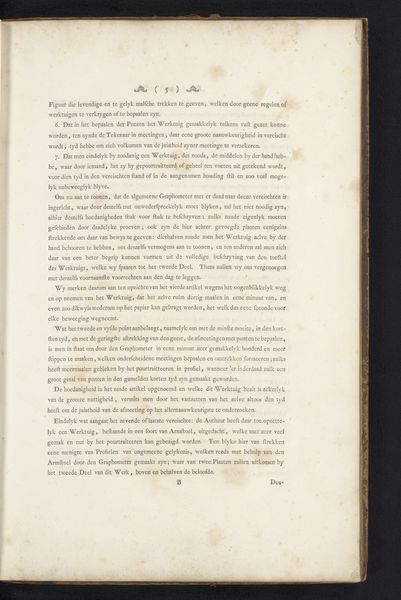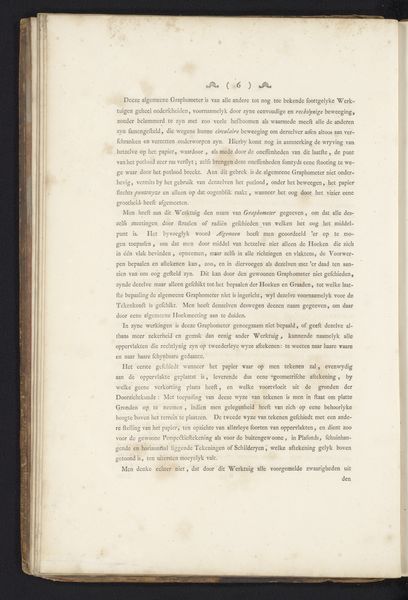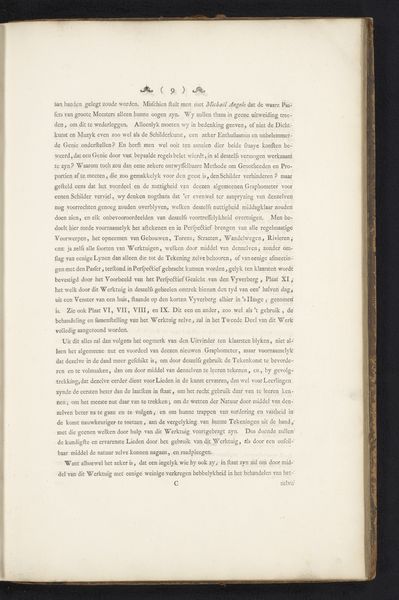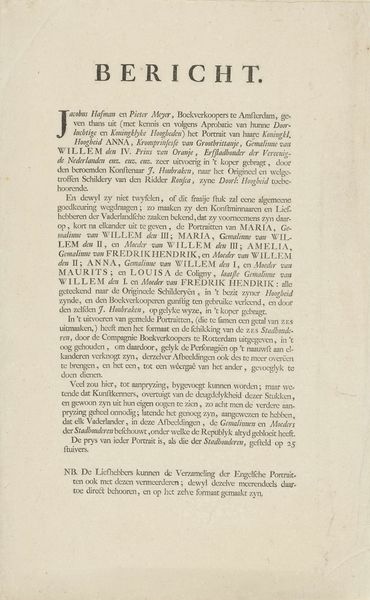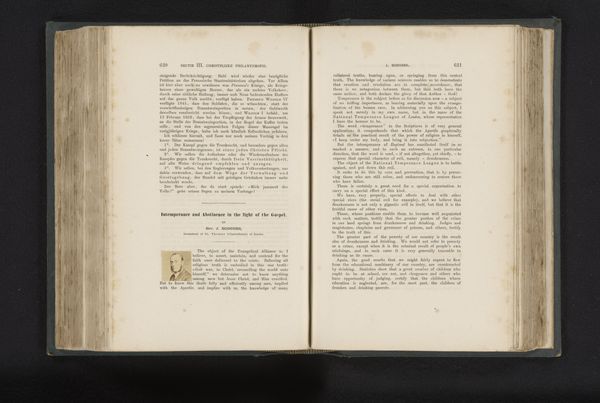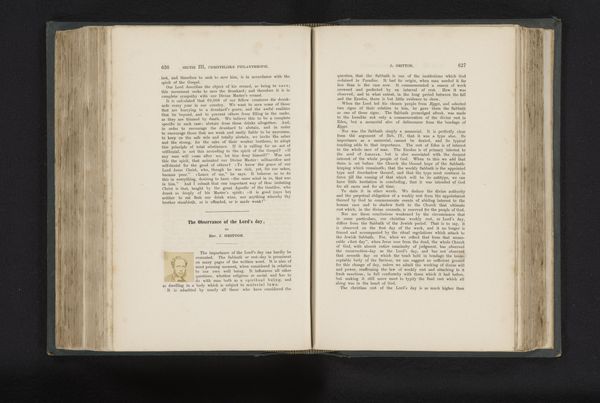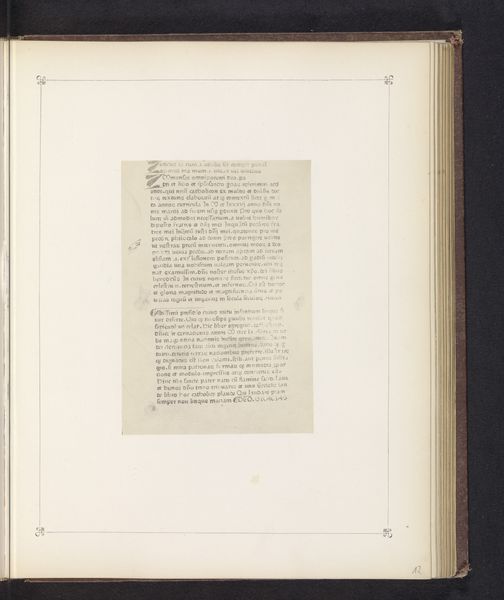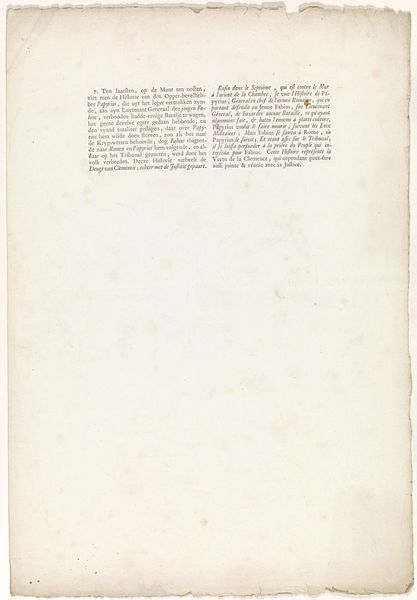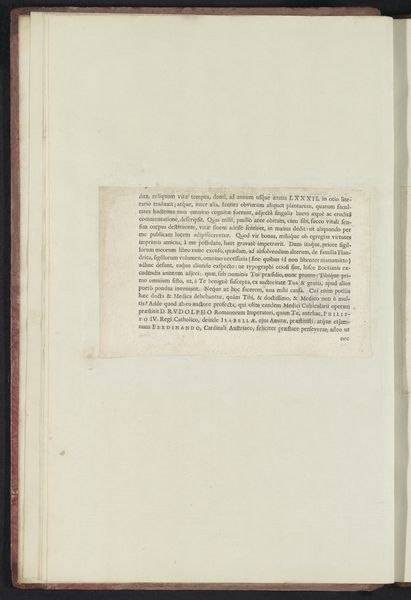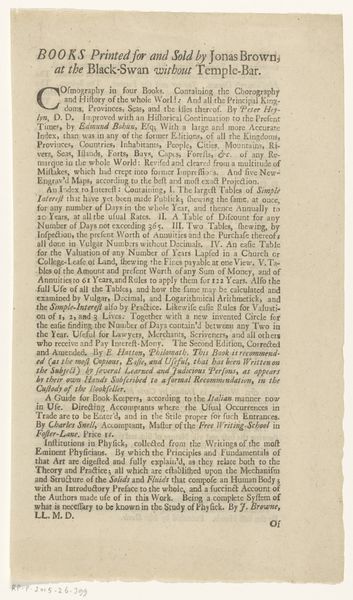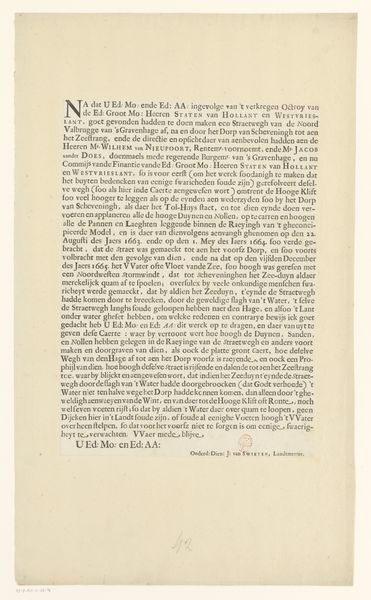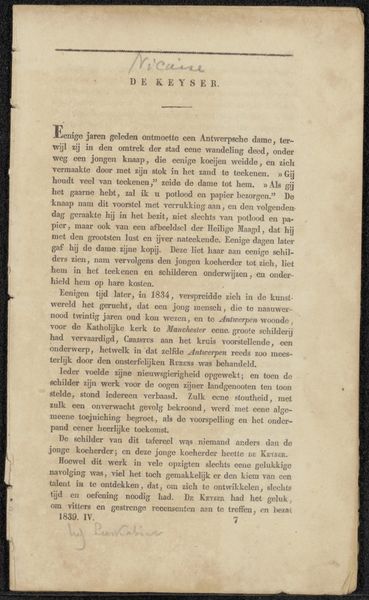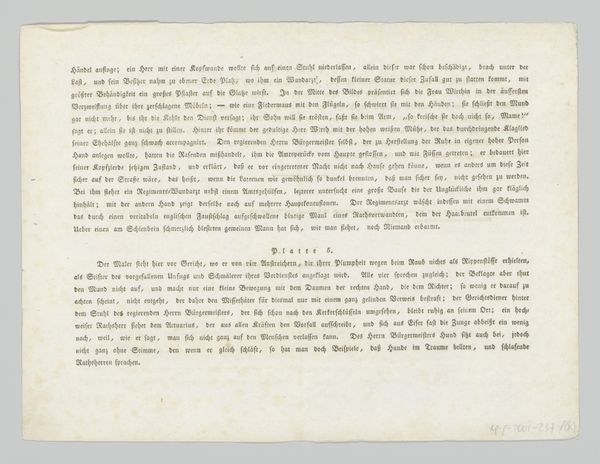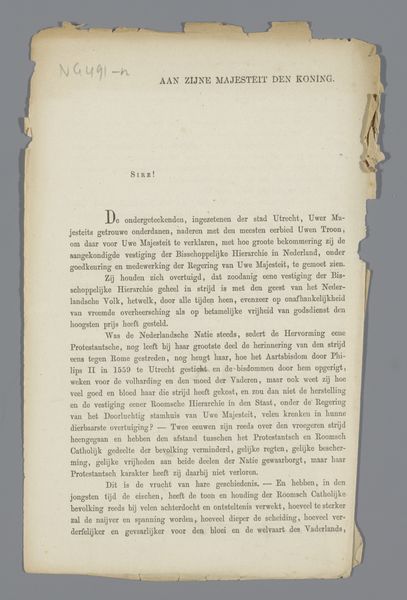
Beschrijving van het nut van de grafometer, pagina 2 van 10 1777 - 1778
0:00
0:00
print, textile, paper, typography
#
dutch-golden-age
# print
#
textile
#
paper
#
typography
Dimensions: height 510 mm, width 330 mm
Copyright: Rijks Museum: Open Domain
This is page 2 of 10 from "Description of the Use of the Graphometer," created by Antoine George Eckhardt around the 18th century. Dominating this page are dense blocks of text, an ocean of letters meticulously arranged. Consider the act of writing itself. The lines of text, uniform yet distinct, echo the architectural drawings the graphometer was designed to produce. Text-based images, like mathematical proofs or ancient runes, appear across time. Think of the Kabbalistic Tree of Life where letters become paths to understanding the divine. Perhaps the emotional weight of the text is the promise of enlightenment it offers. Eckhardt’s careful descriptions aim to illuminate the reader, transforming confusion into clarity. This echoes the alchemical quest for transmutation, where base metals are refined into gold through knowledge and understanding. The cyclical nature of knowledge is revealed here: from the practical application of the graphometer to broader philosophical implications. Each word, each line, pulls us deeper into a timeless pursuit of understanding, resonating through history.
Comments
No comments
Be the first to comment and join the conversation on the ultimate creative platform.
